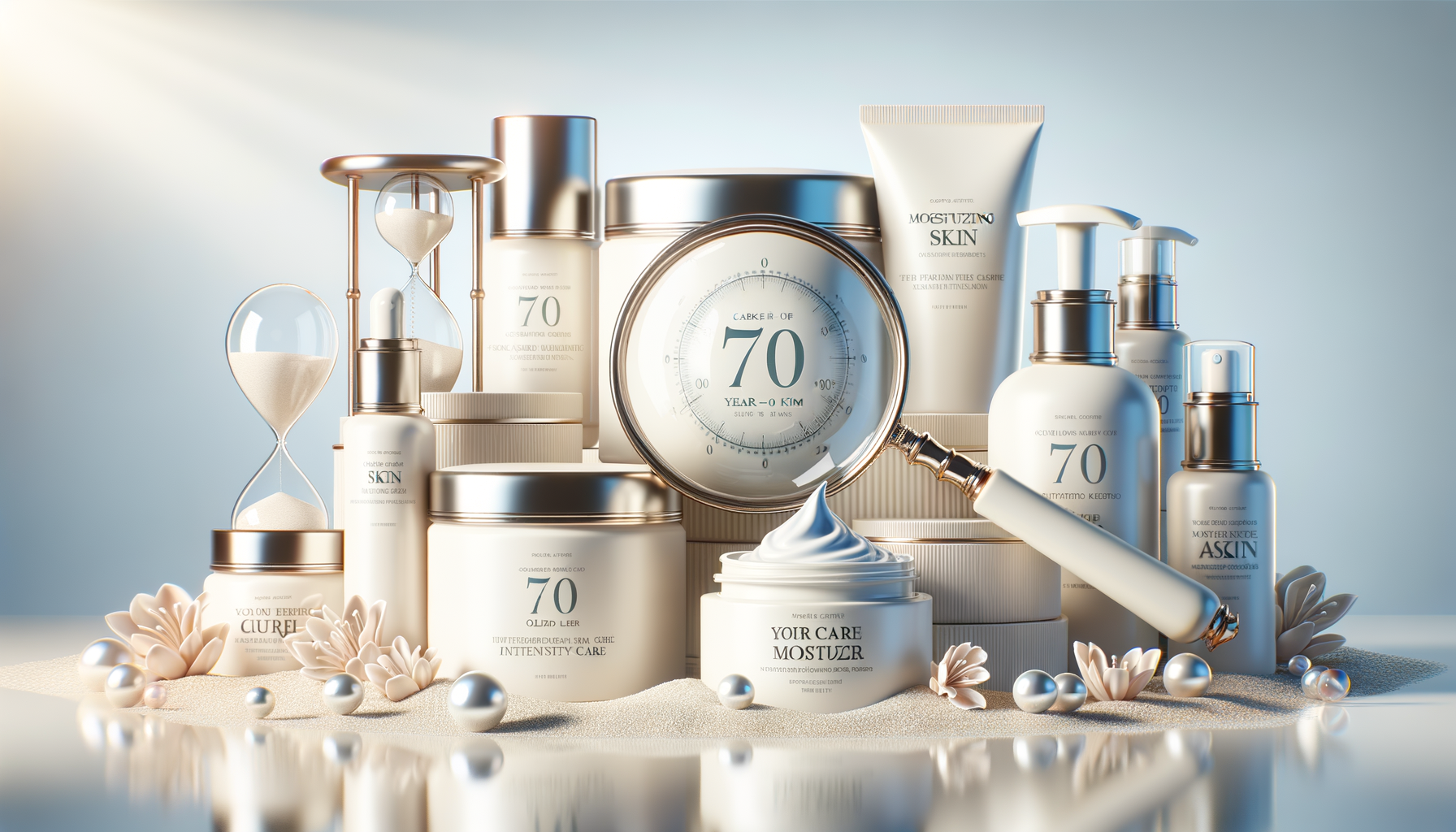Understanding Moisturizers: A Guide for Aging Skin
Explore the importance of moisturizers, especially for aging skin, and discover top options for 70-year-old skin.

The Role of Moisturizers in Skincare
Moisturizers are a fundamental component of any skincare routine, serving to hydrate the skin and create a protective barrier against environmental damage. They are designed to prevent water loss and ensure the skin remains supple and smooth. The relevance of moisturizers extends beyond basic hydration, as they can also help in addressing specific skin concerns such as dryness, irritation, and signs of aging.
As we age, our skin undergoes various changes, including a decrease in collagen production and a diminished ability to retain moisture. This can lead to dryness, fine lines, and a loss of elasticity. Moisturizers play a crucial role in combating these issues by replenishing the skin’s moisture barrier and improving its overall texture.
When selecting a moisturizer, it’s essential to consider the skin type and specific needs. For instance, individuals with dry skin may benefit from richer, cream-based formulations, while those with oily skin might prefer lightweight, non-comedogenic options. Ingredients such as hyaluronic acid, glycerin, and ceramides are often highlighted for their hydrating properties and ability to enhance the skin’s moisture retention.
- Hydration: Helps maintain skin’s moisture balance.
- Protection: Shields skin from environmental stressors.
- Anti-aging: Reduces the appearance of fine lines and wrinkles.
Moisturizers for Aging Skin
Aging skin requires special attention and care, as it tends to be more susceptible to dryness and damage. Moisturizers for aging skin often contain ingredients that not only hydrate but also target signs of aging. These formulations might include antioxidants, peptides, and retinoids, which are known for their ability to improve skin texture and reduce the appearance of wrinkles.
Antioxidants such as vitamin C and E help protect the skin from free radical damage, which can accelerate the aging process. Peptides are known for their ability to stimulate collagen production, thereby enhancing skin firmness and elasticity. Retinoids, derived from vitamin A, are effective in promoting cell turnover and reducing the depth of wrinkles.
Choosing the right moisturizer for aging skin involves considering the formulation’s ability to address specific concerns. For example, a cream with a higher concentration of active ingredients might be suitable for nighttime use, while a lighter formulation with SPF protection could be ideal for daytime wear.
- Antioxidants: Protect against free radicals.
- Peptides: Boost collagen production.
- Retinoids: Promote cell turnover.
Top Moisturizers for 70-Year-Old Skin
Finding the right moisturizer for 70-year-old skin involves understanding the unique needs of mature skin. At this age, the skin’s natural oil production significantly decreases, leading to increased dryness and sensitivity. Therefore, moisturizers that offer intense hydration and soothe the skin are highly recommended.
One of the top options for mature skin includes formulations enriched with hyaluronic acid, which is renowned for its ability to attract and retain moisture. Additionally, products containing niacinamide are beneficial due to their anti-inflammatory properties and ability to improve skin elasticity.
Another consideration is the inclusion of natural oils such as jojoba or argan oil, which provide nourishment without clogging pores. These oils mimic the skin’s natural sebum and offer a gentle yet effective moisturizing experience.
- Hyaluronic Acid: Retains moisture.
- Niacinamide: Improves elasticity.
- Natural Oils: Nourish and hydrate.
How to Choose the Right Moisturizer
Selecting the right moisturizer involves more than just picking a product off the shelf. It’s about understanding your skin’s needs and how different ingredients can address those needs. For aging skin, this means focusing on products that offer hydration, protection, and anti-aging benefits.
When evaluating moisturizers, consider the texture and formulation. Creams are typically richer and more suitable for dry, mature skin, while lotions and gels may be preferable for those with combination or oily skin. It’s also important to look for hypoallergenic and fragrance-free options if your skin is sensitive.
Reading labels and researching ingredients can provide insight into how a product will perform. Look for products that have been dermatologically tested and have positive reviews from users with similar skin types. Consulting with a dermatologist can also offer personalized recommendations based on your skin’s condition and needs.
- Creams: Best for dry skin.
- Lotions/Gels: Suitable for oily or combination skin.
- Hypoallergenic: Ideal for sensitive skin.
Conclusion: Embracing Moisturizers for Healthy Aging
In conclusion, moisturizers are an essential part of skincare, especially for those with aging skin. They offer hydration, protection, and anti-aging benefits that are crucial for maintaining healthy and youthful skin. By understanding the needs of mature skin and selecting products tailored to those needs, individuals can enjoy a radiant and resilient complexion.
For those in their 70s, focusing on moisturizers that provide deep hydration and support skin elasticity is key. Embracing a skincare routine that includes the right moisturizer can make a significant difference in the appearance and feel of your skin, allowing you to age gracefully and confidently.